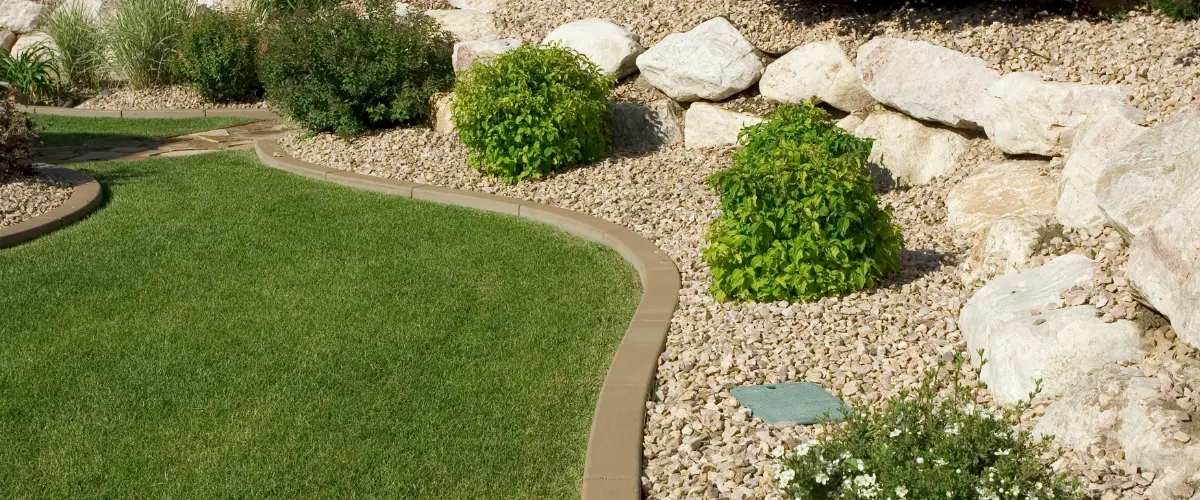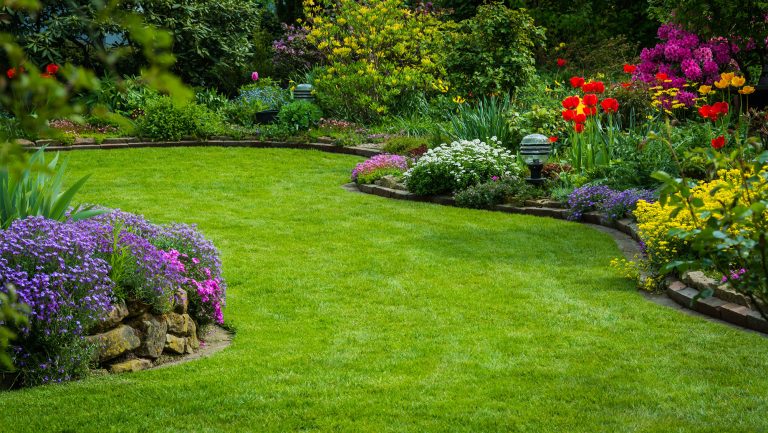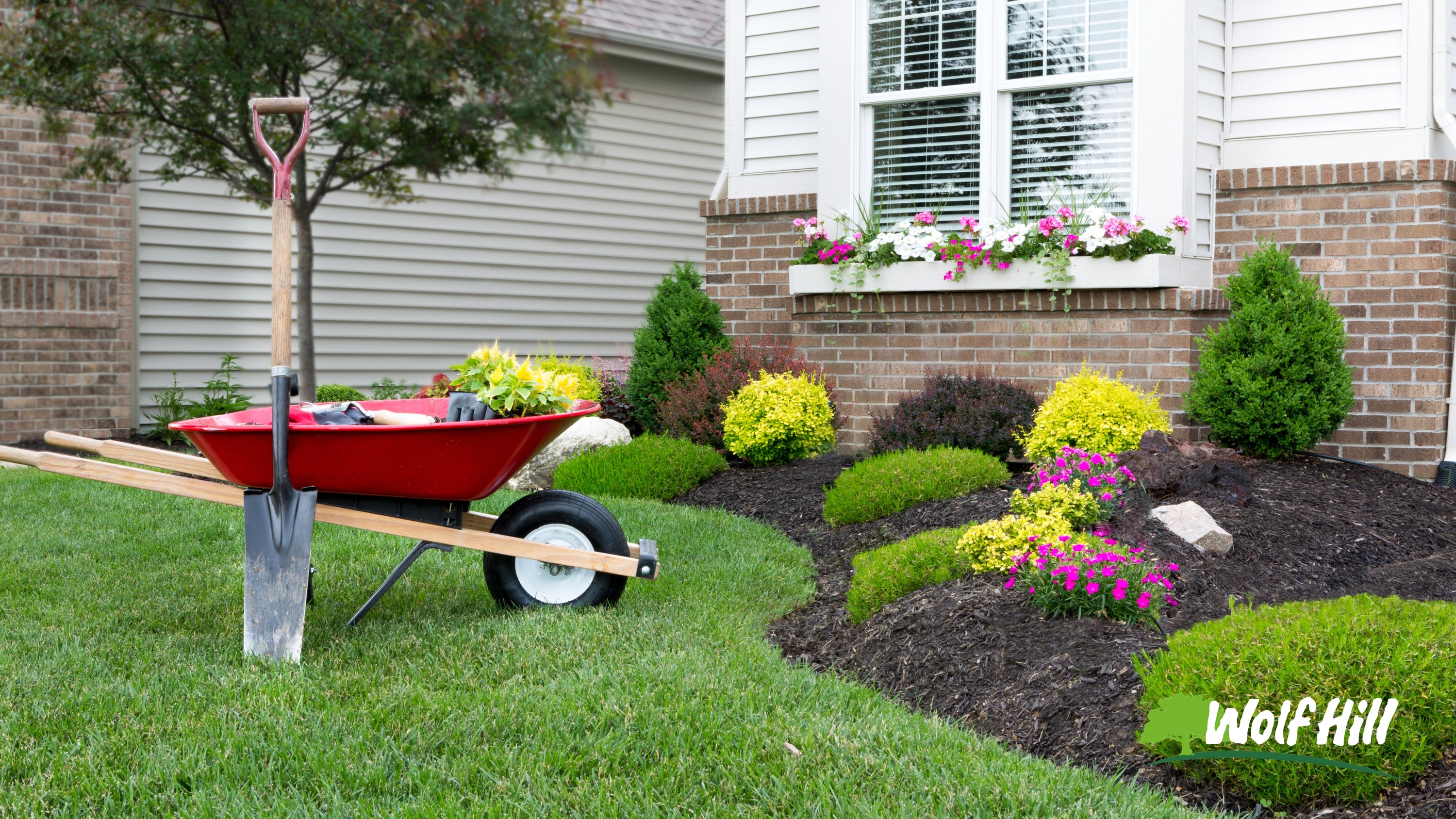Landscape and Design: Transform Your Outdoor Space With Professional Garden Design And Lawn Improvement Services
Design Concepts and Elements in Landscaping
Have you ever wandered through a garden that seemed like a secret poem whispered by nature itself? That sense of harmony and balance doesn't occur by accident. It's the careful orchestration of design principles and aspects that transform a spot of earth into a living masterpiece. When you think of landscaping, what enters your mind first? Color? Texture? Space? These components are the fibers woven into the material of every successful landscape.
Balance and Unity: The Backbone of Landscape Design

Balance can be in proportion, where each side mirrors the other like a perfectly folded origami, or asymmetrical, where contrasts produce dynamic tension-- think of a lone oak standing tall versus a cluster of wildflowers. Unity ties whatever together, directing the eye smoothly from one feature to another. Ever observed how a properly designed garden never feels disorderly however rather invites calm expedition?
Crucial Element to Consider
- Line: It directs movement-- curved courses welcome leisurely strolls, while straight lines recommend formality.
- Texture: Rough bark juxtaposed with soft yard includes sensory depth.
- Color: Beyond looks, color affects state of mind-- dynamic reds energize, while cool blues soothe.
- Scale and Proportion: A towering sculpture overshadows fragile shrubs, so size relationships need to harmonize.
- Focal Points: Whether a water function or a striking tree, focal points anchor the area visually.
Applying These Concepts: A Personal Tale
When, redesigning a backyard, I dealt with a persistent issue: how to create a sense of enclosure without shutting off the view. Instead of erecting a fence, I planted a staggered row of evergreens with differing heights-- a subtle play on percentage and scale. The result was a natural screen that seemed like a relaxing nook rather than a barrier. Isn't it remarkable how thoughtful application of style elements can fix useful obstacles while enhancing appeal?
| Concept | Effect | Example |
|---|---|---|
| Balance | Produces harmony | Balanced flower beds |
| Unity | Visual cohesion | Consistent plant theme |
| Centerpiece | Draws attention | Water fountain |
| Scale | In proportion components | Big trees with little shrubs |
| Texture | Varied sensory feel | Mix of rough stones and smooth leaves |
Checking Out Diverse Landscaping Designs
Why choose a cookie-cutter garden when nature uses a palette of designs as differed as the seasons? From the relaxing zen gardens of Japan to the wild, untamed appearance of naturalistic landscapes, each style forms not simply the soil, however the soul of your outdoor area. Do you crave order or mayhem in your plant?
Popular Landscaping Styles and Their Essence
- Formal Gardens: Proportion and precision guideline. Think of walking through a labyrinth of perfectly clipped hedges where every corner whispers careful care.
- Cottage Gardens: Overruning with color and beauty, this design welcomes spontaneity, much like an artist's canvas sprinkled with dynamic flowers.
- Desert Landscaping: Embrace drought-resistant plants and stones; a nod to resilience in dry environments, where every aspect narrates of survival.
- Modern Minimalist: Tidy lines, basic shapes, and restrained plant palettes develop a serene, almost meditative area-- less really is more here.
Expert Tips for Picking Your Design

- Assess your soil and environment-- does the style prosper naturally, or will you fight against environment daily?
- Match the landscaping style to your lifestyle; do you want a low-maintenance retreat or a hands-on job?
- Think about the architectural design of your home-- does your garden echo or contrast with your house?
- Usage native plants where possible; they provide eco-friendly balance and lower the need for excessive watering or fertilizing.
Ever seen how some landscaping develops narrate while others merely decorate? The secret depend on thoughtful layering-- mixing textures, heights, and colors to craft a living narrative. A buddy as soon as regreted her garden's lack of character till she presented a winding path lined with fragrant herbs. Suddenly, every see became a sensory journey, not simply a visual experience.
Necessary Tools and Devices for Mastering Landscaping
Ever tried battling with a stubborn root without a pruning saw - Landscaping.?. !? It's like attempting to paint a masterpiece with a broom. The right tools don't simply make the job simpler-- they change your whole technique to landscaping
Think about check here the humble spade. It's more than simply a hole-digger; a sharp, well-balanced spade can shape the earth with skill, whether you're edging a flower bed or transplanting a fragile shrub. However beware: dull edges turn effort into disappointment.
Must-Have Hand Tools
- Hand trowels for accurate planting
- Ergonomic loppers to prune without stress
- Garden forks that aerate soil, enhancing root growth
- Weeders that sneak under pesky intruders without disturbing neighbors
Power Equipment That's Worth the Financial investment
When surface gets hard, a rototiller breathes life into compacted ground, turning hardpan into an inviting bed for seeds. However even with contemporary machines, understanding soil texture and wetness content stays essential-- overworking the earth can cause compaction, the quiet opponent of healthy landscaping.
| Equipment | Finest Use | Professional Idea |
|---|---|---|
| Hedge Trimmers | Shaping bushes and hedges | Trim throughout dry weather to avoid fungal infections |
| Wheelbarrow | Carrying soil, mulch, and plants | Balance loads uniformly to reduce back pressure |
| Leaf Blower | Clearing debris quickly | Use morning or late evening to reduce disturbance |
Have you ever discovered how the tiniest tool can pivot your landscaping experience? A pair of quality gloves guards your hands but also provides unforeseen grip, making each task smoother (Landscaping Near Me). The secret depend on pairing the right devices with method-- sharp tools wielded with care outperform brute force any day
Environmental Impact and Sustainability in Landscaping
Have you ever paused to consider just how much water your garden guzzles during a drought? Water conservation isn't simply a buzzword-- it's a lifeline for sustainable landscaping. When plants are chosen without regard to regional climate, the thirst they demand can drain pipes resources faster than one may think of. I recall a job where native drought-resistant plants changed a parched yard into a vibrant sanctuary, slashing water use by over 40%. Why settle for thirsty exotics when nature's own palette grows with less?
Soil Health: The Unsung Hero

Soil isn't simply dirt; it's a living tapestry bursting with microbes that govern plant health and carbon sequestration. Neglecting soil deterioration is like building a house on sand. Composting organic waste and integrating cover crops can revitalize tired earth, improving nutrition biking and water retention. Ever discovered how mulching can at the same time reduce weeds and lock moisture in? That's the kind of double-duty approach that raises sustainable landscapes.
Expert Tips to Boost Eco-Friendly Landscaping
- Select native or adaptive plants to minimize chemical inputs and irrigation needs.
- Incorporate rain gardens or bioswales to manage stormwater overflow effectively.
- Limitation hardscaping surfaces to prevent heat islands and promote groundwater recharge.
- Usage permeable materials for paths and patio areas to motivate natural water seepage.
- Execute layered planting strategies to simulate natural communities and increase biodiversity.
Stabilizing Visual Appeals with Ecology
Can a garden be both a banquet for the eyes and a sanctuary for wildlife? Absolutely. I've witnessed landscapes where pollinator-friendly plants draw in bees and butterflies, turning lawns into buzzing communities. This isn't just a feel-good gesture; it helps in ecosystem remediation, assisting native species rebound. The secret lies in thoughtful style that accepts imperfection-- leaves left to decay, wildflowers permitted to flower untamed.
| Practice | Environmental Advantage | Application Pointer |
|---|---|---|
| Rainwater Harvesting | Decreases drinkable water utilize | Install barrels linked to downspouts |
| Native Plant Selection | Supports regional animals and lowers irrigation | Consult local plant guides |
| Organic Mulching | Improves soil moisture and fertility | Use shredded leaves or bark |